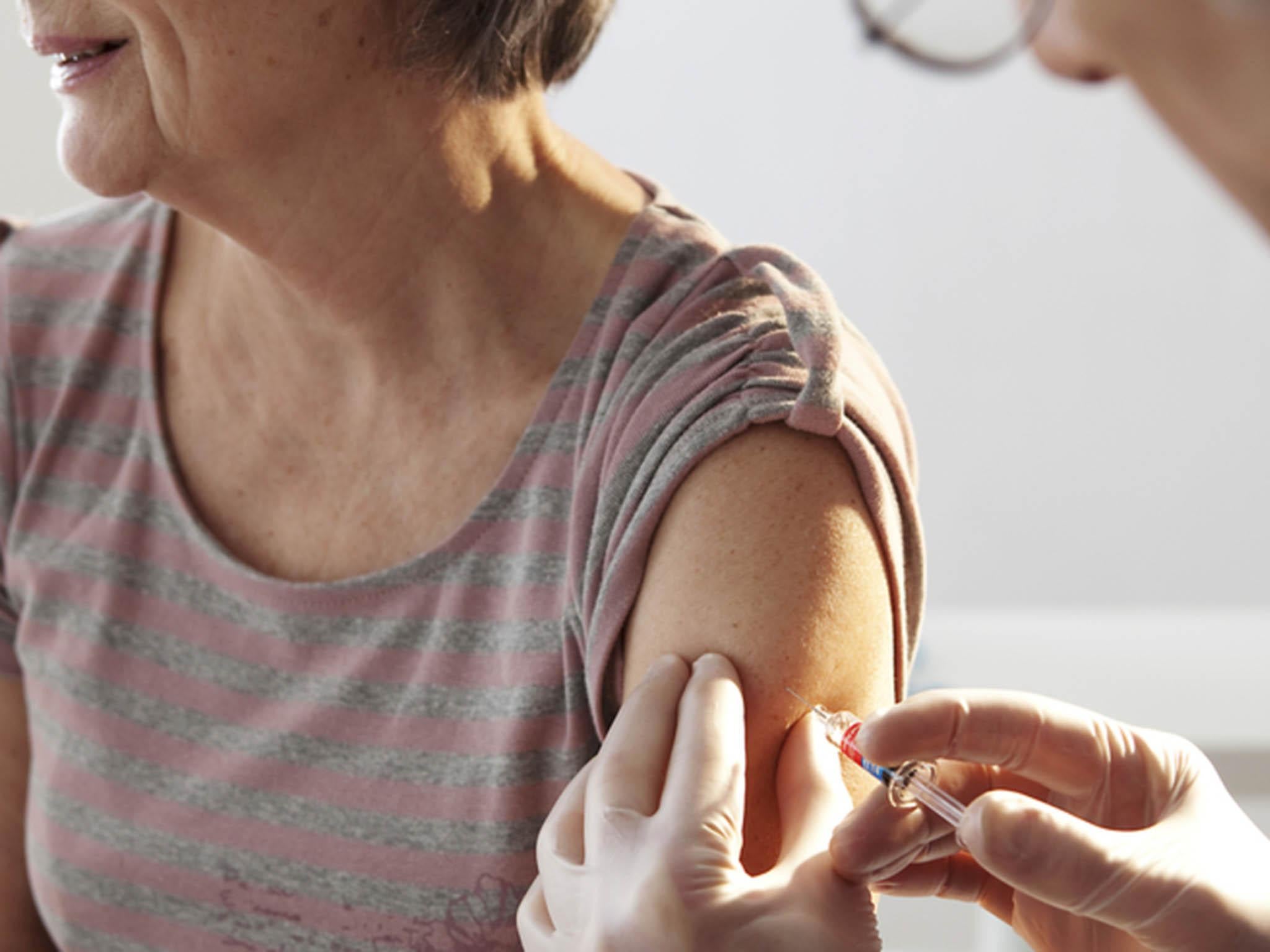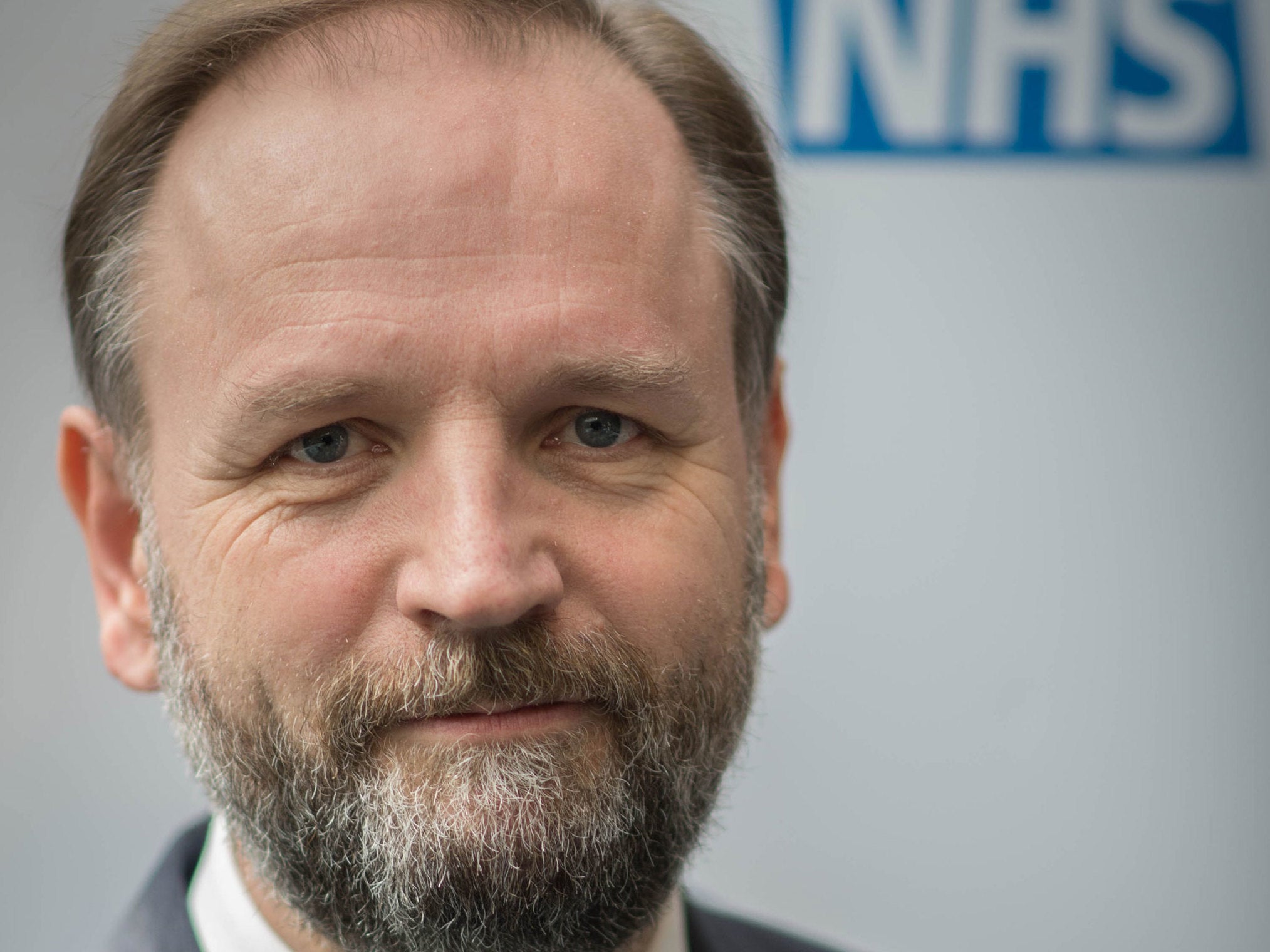NHS boss issues winter flu warning after 'heavy outbreak' puts public at risk
'We know we are better prepared, but we also know that the pressures are going to be real,' Simon Stevens says

Your support helps us to tell the story
From reproductive rights to climate change to Big Tech, The Independent is on the ground when the story is developing. Whether it's investigating the financials of Elon Musk's pro-Trump PAC or producing our latest documentary, 'The A Word', which shines a light on the American women fighting for reproductive rights, we know how important it is to parse out the facts from the messaging.
At such a critical moment in US history, we need reporters on the ground. Your donation allows us to keep sending journalists to speak to both sides of the story.
The Independent is trusted by Americans across the entire political spectrum. And unlike many other quality news outlets, we choose not to lock Americans out of our reporting and analysis with paywalls. We believe quality journalism should be available to everyone, paid for by those who can afford it.
Your support makes all the difference.Hospitals have been urged to brace themselves for a “pressurised” flu season this winter, the head of the NHS has said.
The comments from NHS England chief executive Simon Stevens come at the tail end of a “heavy flu outbreak” in the Southern Hemisphere during its winter.
Hospitals in Australia and New Zealand struggled to cope, he said as he urged hospitals in England to be prepared for flu season.
Mr Stevens said the health service was reviewing the situation in the countries, where hospitals were forced to close their doors to new patients and people faced long waiting times.
He told delegates at the NHS Expo conference in Manchester: “For the next three, four, five months, the top priority for every [NHS] leader, every part of the NHS, is ensuring that the NHS goes into winter in as strong a position as possible.
“We know we’re going to have more hospital beds open, we know we are better prepared, but we also know that the pressures are going to be real.
“The signs from Australia and New Zealand, who are just coming out of their winter, are that it has been a heavy flu season and many of the hospitals down there have struggled to cope.
“We know that there is a great deal of work to be done over the next six to eight weeks with our partners in local authorities to put the NHS on the right footing for the winter ahead.”

He later added: “The signs from the Southern Hemisphere winter have been that flu has been much higher and it has been the variety that puts the most pressure on the old people’s services like care homes.
“The World Health Organisation is reviewing the vaccines and if that reproduces itself here over this coming winter that is going to mean much more pressure on GP services and hospitals.
“That simply reinforces the work that the NHS is doing to open extra beds and ensure that a full range of out-of-hospitals services, such as home care and care homes, are ready.
“The WHO identifies the best mix for the vaccine and that is the one Public Health England use.”
He added: “We are reviewing the Australia and New Zealand experience, where hospitals have closed to new patients and reported very long waiting times.
“The evidence is we are likely to have a more pressurised flu season this year.”
Mr Stevens continued: “The work that Pauline Philip, the national A&E director, has done is to review the readiness in each part of the country and to ensure that hospitals will at least have the 2,000 to 3,000 extra beds available that going into the year we thought would be needed.
“But in some parts of the country, clearly there are real pressures, so we are using the next six to eight weeks to really be clear what the plan there needs to be.
“Part of this is ensuring that we see further improvement in delayed discharges before November and the plan to free up 2,000 to 3,000 beds relies on significant improvement in that area.
“Our goal was that A&E performance should be back to 90 per cent by September and we are on track for that goal.”
PA
Join our commenting forum
Join thought-provoking conversations, follow other Independent readers and see their replies
Comments